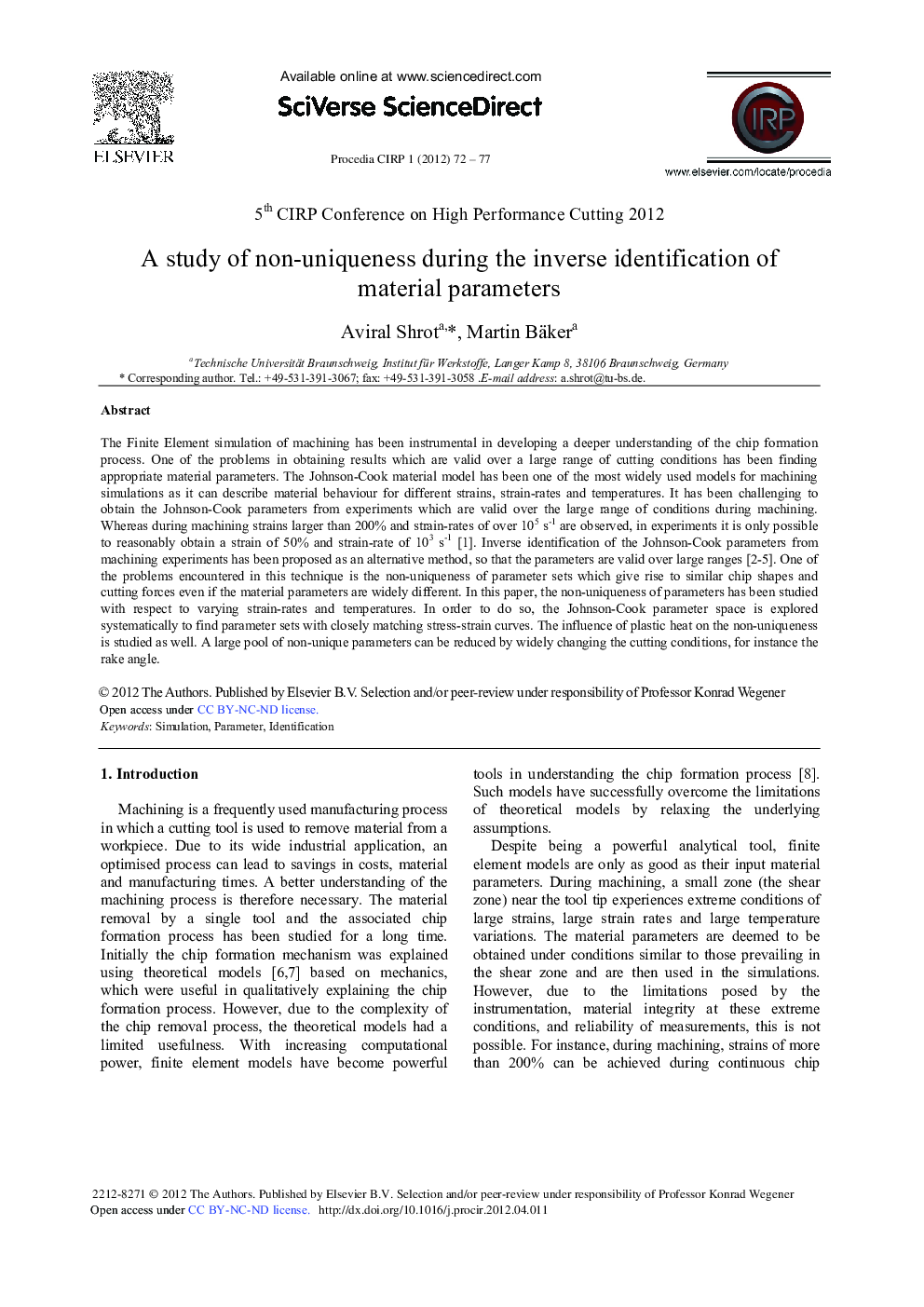| Article ID | Journal | Published Year | Pages | File Type |
|---|---|---|---|---|
| 1701476 | Procedia CIRP | 2012 | 6 Pages |
The Finite Element simulation of machining has been instrumental in developing a deeper understanding of the chip formation process. One of the problems in obtaining results which are valid over a large range of cutting conditions has been finding appropriate material parameters. The Johnson-Cook material model has been one of the most widely used models for machining simulations as it can describe material behaviour for different strains, strain-rates and temperatures. It has been challenging to obtain the Johnson-Cook parameters from experiments which are valid over the large range of conditions during machining. Whereas during machining strains larger than 200% and strain-rates of over 105 s-1 are observed, in experiments it is only possible to reasonably obtain a strain of 50% and strain-rate of 103 s-1[1]. Inverse identification of the Johnson-Cook parameters from machining experiments has been proposed as an alternative method, so that the parameters are valid over large ranges [2–5]. One of the problems encountered in this technique is the non-uniqueness of parameter sets which give rise to similar chip shapes and cutting forces even if the material parameters are widely different. In this paper, the non-uniqueness of parameters has been studied with respect to varying strain-rates and temperatures. In order to do so, the Johnson-Cook parameter space is explored systematically to find parameter sets with closely matching stress-strain curves. The influence of plastic heat on the non-uniqueness is studied as well. A large pool of non-unique parameters can be reduced by widely changing the cutting conditions, for instance the rake angle.
